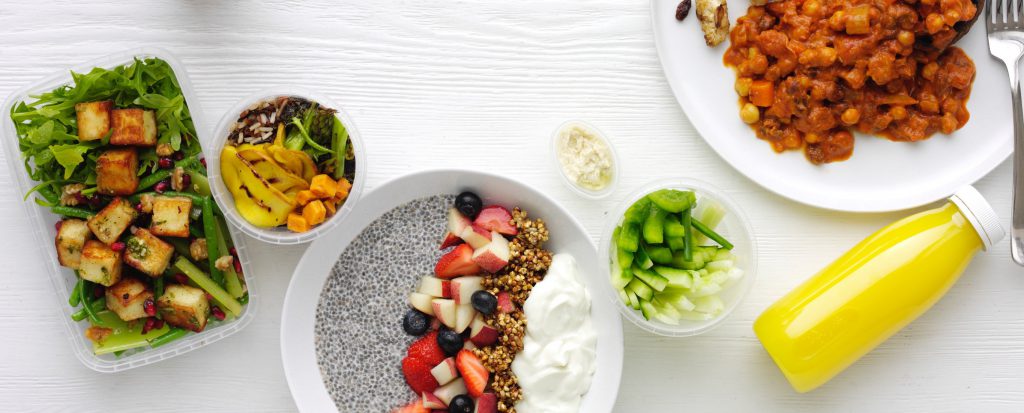

HOW TO GAIN ON THE VEGGIE TRAIN?
With plant-based elite athletes such as Olympian Track Gold medallist Carl Lewis and MMA fighter Mac Danzig proving that vegetarianism isn’t just for the stereotyped yoga/pilates-goer, it’s no surprise that going meatless has made its way in to the world of barbells and squat racks. But while the long term health and environmental advantages, as well as the benefit to animals is well-known, the question on the lips of curious gym-loving almost vegetarians is – can I build muscle without eating meat?


The answer is yes, and a lot easier than you may think! The objectives are no different to those applied to any muscle-building meal plan and can be seen below:
(1)Calorie Surplus
It’s the old age formula of calories in vs. calories out and in order to build muscle, you must be eating more calories than you are burning. On a vegetarian diet, these calories will come from whole food sources such as wholegrains, legumes, nuts, vegetables, fruits, dairy and meat-free protein sources such as eggs and tofu.
(2)Protein
The building blocks of muscle and one of the more important macronutrients when it comes to achieving hypertrophy. And while protein is generally associated with meat, there are plenty of vegetarian-friendly high protein foods packed with all of the essential amino acids needed to build and recover trained muscles. These include eggs, beans, chickpeas, lentils, nuts, seeds, and wholegrains such as brown rice and quinoa. Whey or plant-based protein powders are another great addition to your pre or post workout routine.
(3)Fats
Fat aids satiety and is an important macronutrient for hormone production, as it is necessary for the synthesis of both testosterone and oestrogen. It is also the most calorie dense of the macronutrients, packing 9 calories per gram. Adding healthy dietary fats such as avocado, nuts and seeds to your diet are a great way to up your calorie intake without having to consume large amounts of food.
(4)Carbs
Carbohydrates are the main source of fuel used by our muscles during intense training, and are an important component of any well-balanced diet. Complex sources such as oats, brown rice, sweet potato and other wholegrains are great slow-release options. Quinoa however takes the cake – not only is it a great source of complex carbs, it contains all 9 essential amino acids and is high in protein.
So it’s safe to say that going meatless doesn’t have to compromise your progress in the gym, as long as the basic principles of any standard “grower’s” diet are followed – a calorie surplus, the inclusion of a range of veggie-friendly protein sources, wholegrain carbohydrates and healthy fats. If Maz Danzig can step in to an MMA ring using plant-based fuel, and Carl Lewis can win Gold, lifting more and building muscle are far from unachievable goals.